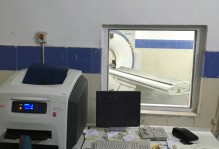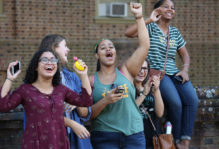Wise Consumption – Redefining sustainability and what it means to ‘have it all’
When we think about our future, what our “ideal” life would be, and what would ultimately make us happy, many of us envision the “American Dream.” We want a high paying job, a family, and a big house in the suburbs with a large yard for our dog to run around in. We could buy whatever we wanted to make us happy. But that’s not what Bob envisioned. Bob is 92 and sharp as a tack. He grew up on his family’s farm, where his family never had much money, but they had plenty of food to trade and share with their tightly knit community of friends and family. They didn’t have much, materially speaking, but they were happy and had a sense of true abundance. Though Bob made plenty of money as an accountant later in life, his spending habits were conservative; instead, he strove to maintain what he had as a child, recognizing that what was truly valuable to him was his health, good food, and quality time with family and friends. According to Dr. Michael Luchs, Bob is a “wise consumer.”
Dr. Luchs is a professor at the Mason School of Business, whose past research has focused on sustainable consumption and product innovation & design. In an attempt to understand the psychology of the wise consumer, Luchs has been conducting interviews across the country since receiving a two-year grant last summer from the Templeton Foundation, in collaboration with the University of Chicago’s School of Divinity.
The choices that we make in regards to our consumption habits affect both our planet and our personal well-being. On a global scale, our current habits are far from sustainable. Everyone is a consumer of resources, but it is wisdom that guides us to make better and more sustainable choices. Wise consumers make their choices not just based on what products are “green,” but under a holistic mindset that allows them to make decisions based on what is best for themselves, future generations, and subsequently, the planet as a whole. Luchs has set out to understand these consumers through their choices (and non-choices), as well as their lifestyle philosophies.
Though his research is ongoing, there are several emerging hallmarks of wisdom that he has identified. They are not difficult mental constructs that are only obtainable by a gifted few, but are rather seen through the intentional way that these individuals make decisions. The first challenge for Luchs was to find ways to identify wise individuals. Since wise individuals typically are humble and don’t see themselves as particularly wise, Luchs first sought out communities that he thought would be fruitful. Searching specifically for people who are pragmatic, resourceful, and self-sufficient, he zeroed in on community organizations like tool sharing libraries and swap-and-plays, and asked their organizational leaders if there was anyone in their community that exhibited the traits of a wise consumer. Being careful to not specifically use the word “wise” in his qualifications, Luchs then phone-screened subjects of interest before selecting them for an official interview. He has interviewed people all over the country, from Oregon, to Kansas, to New York. From farms to urban communities, wise consumers can be found everywhere and at every socioeconomic level.
Another hallmark is that wise consumers are better at balancing many perspectives when making decisions, thinking about how their choices will affect themselves, others, and the environment in the short and long term. To demonstrate this mindset, let’s say that you need a new blender. Most consumers would go to the closest store and purchase a cheap blender that might only last for a few years, choosing primarily based on best price. Wise consumers will instead take long term value into consideration and purchase something after sufficient research to let them know which blender performs the best and consider why they need it – and, critically, whether they really need it (often wisdom is about not choosing to do something, in this case to purchase something). If they decide that they do really need one, they may end up spending $100-200 on a blender instead of $30, but that blender will more likely be one that will last them forever, maybe even to be passed on to their children to use someday. This wise consumer strategy produces much less waste and saves money in the long run – and uses fewer financial and environmental resources. Simply put, the wise consumer is more adept at understanding and addressing their own needs – and their sense of self extends into their own community and beyond. For businesses and product managers that made decisions about products, the conclusion is simple: product development needs to shift away from developing disposable, cheap, seasonal items to making things that we really need and making those products really well.
“Just because you can afford to live in a larger apartment or because you can afford to live on your own, doesn’t mean you’ll be happier… Filter all of your decisions based on what is going to give you lasting happiness – which comes mostly from our relationships with other people. And if you also save money, that is going to give you peace of mind.”
What are these individuals gaining by being wise consumers? Across the board, wise consumers have a strong sense of community and connection to others and to the environment. Research has shown that this interconnectedness is critical to personal well-being as there is much value that can be derived from it. Making decisions from the mindset of what we can truly obtain long term value from simplifies decisions as we then don’t waste time or money on anything that is not of real value to us over time. While mass marketing attempts to woo many into purchasing products that might make us happier in the moment – or at least make us believe so, wise consumers opt out of this mindset and instead use value based reasoning, ultimately leading them to better decisions. There is even a sense of spirituality from this interconnectedness that is expressed by wise consumers, whether religious or agnostic. This lifestyle, though personally and environmentally beneficial, may seem challenging to some. But Luchs hopes to find how aspects of this lifestyle can be emulated by the general public to create lower ecological impacts, while promoting individual well-being, not sacrificing it.
What is really going to make a difference is making lifestyle choices, not simply doing the small things like buying eco-friendly products. Buy something used instead of something new (or, simply choose not to buy), take local trips instead of international trips, start a tool or toy exchange in your neighborhood, and expand your ideas on what can be renewed and reused. Inspired by what they saw while in Portland, Oregon, Dr. Luchs and his wife are trying to adopt some of the specific ‘wise consumption’ ideas that Dr. Luchs’ research has identified, including the creation of a Free Little Library at the end of their driveway – in an effort to contribute to the promotion of community and sharing through the free exchange of books. Mrs. Luchs is also learning how to become a beekeeper, in an effort to contribute to the production of food, even at a small, local level. If you’re inspired to take a step in the right direction towards making wiser consumption choices, Dr. Luchs has some simple advice based on his preliminary research
“Recognize that you’re going to be making lots and lots of consumption related choices over your lifetime – tens of thousands of small decisions, and some bigger ones, really add up. The source of wisdom is reflection – so, reflect on what really contributes to your well-being. What gives you meaning and purpose in life, and motivates how you spend your time and money? Products and services can enable some things that really do add value to our lives. But, with reflection, we can begin to filter out the things that waste our time, money, and other valuable resources.”
Interested in learning more about Dr. Luchs, sustainable consumption, and wise consumers?
- Take one of Dr. Luchs’ courses at the business school! He offers Sustainability Inspired Innovation and Design and every spring and Customer Insight for Innovation every fall.
- Check out a first hand account of some of Dr. Luchs interviews on the Enhancing Life blog.




No comments.
Comments are currently closed. Comments are closed on all posts older than one year, and for those in our archive.